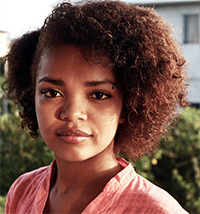“THEY…brought us parrots and balls of cotton and spears and many other things, which they exchanged for the glass beads and hawks’ bells. They willingly traded everything they owned…They do not bear arms, and do not know them, for I showed them a sword, they took it by the edge and cut themselves out of ignorance…With 50 men we could subjugate them all and make them do whatever we want.” – Christopher Columbus.
The passage above was taken from historian Howard Zinn’s, A People’s History of the United States. Columbus, in that quote, was describing the native Arawak people he had encountered when he landed in The Bahamas in 1492. Implicit in this one recount is the long, sordid history of colonialism and the genocide the natives would suffer at the hands of the colonisers. Columbus’s words were not idle. It was only a few decades before the Arawaks,along with several other native tribes, were almost wiped out from The Bahamas by the Spaniards.
What happened to the natives in The Bahamas is an unfortunate truth that happened in almost all the places in which natives resided and were ‘discovered.’ Here in Guyana, the plight of the native or first people, whom we refer to as Amerindians, was not much different. Our history books give a passing sentence or two to the sufferings that were dealt out to the Indigenous peoples when colonisers arrived on our shores.
As a result, there is a certain vagueness people have when they think of the injustices against natives. My paternal grandmother was Arawak-descended. My maternal grandmother was Carib-descended. I have not only the blood of the first people flowing through my veins. I have the blood of two different and often opposing tribes within me. My maternal grandmother was more connected to her Indigenous culture, but even she treated it more as something that was secondary, something to be forgotten. As a result, I grew up being aware of my descent, but not my culture. So, now I scrape and grasp at what I can, listening to the tales of the long forgotten and trying to remember a history I was never privy to.
Years of genocide and colonialism, years of disrespect and disregard for the first people have caused within us an aligning with cultures not our own. The loss of our culture is almost like a wilful forgetting, albeit it being a forced one. I don’t know much about my culture, I try to learn but I always get sidetracked with issues that I’d rather not see. Every time I try to learn about what the land means to the first people and how they are connected to it, I see instead how their ancestral lands are being trampled upon in pursuit of capital. They are being displaced and compromised. Their food is dwindling, their livelihoods are being taken away and their access to basic services and necessities has long since been disregarded.
I’d ask the question of, why? However, I already know the answer. The idea that the first people are ‘savages,’ ‘uncultured,’ is one that has been continuously built up over the years. Somehow, the simplicity required to live off of the land has been thwarted into something that should be frowned upon and disrespected.
Due to the fact that they often reside in reservations, the first people suffer high rates of poverty. The education they receive is subpar and often only goes to a certain level, after which many either drop out completely or have to seek a central area to go to school. They do not have access to the same services that are afforded others and the government has to realise that they have a binding obligation to provide this.
Indigenous peoples are continuously being forced off their lands with the help of the government. Large and small companies and concessions are granted permission to log and mine on Indigenous lands and hunting grounds. Given the violent history they have suffered, laws, acts and treaties have been put in place to help protect the first people and their lands. These things have however, fallen drastically short of their intended aim and natives continue to suffer because of discrimination against them.
As I celebrate the heritage of my people, I ask that we become more cognisant, more respectful of the lives and culture of the first women and men who, despite the brand of ‘savages,’ never needed to become ‘civilised.’











